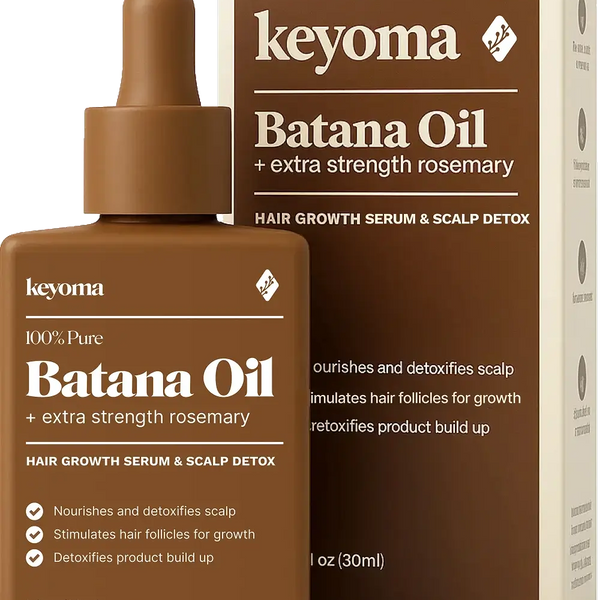In this article
Low biotin can contribute to hair shedding, and supplements may help when you’re lacking. Still, studies haven’t shown extra hair growth from biotin in people who aren’t deficient.
Biotin is a B vitamin your body uses to pull energy and nutrients from carbohydrates, protein, and fat.
Your body needs it to work well. Small amounts are in many foods, including egg yolks, nuts, and legumes. Bacteria in the large intestine also make biotin. Most people get enough from these two sources.
Even so, a supplement may be needed during pregnancy or when a true deficiency is present.
You’ll see biotin promoted to help hair, but clinical data don’t support it as a growth booster.
You’ll find how biotin connects to hair growth, recommended intakes, side effects, and deficiency below.
Key Takeaways
-
Biotin deficiency can cause hair loss; supplements may help when deficiency or pregnancy exists.
-
Most people get enough biotin from foods and gut bacteria; megadoses lack evidence.
-
High biotin can interfere with laboratory tests, especially some thyroid and troponin assays.
-
In type 2 diabetes, biotin may lower fasting glucose without affecting A1C.
What is Biotin?
Biotin, also called vitamin B7, supports normal hair growth and may limit loss when levels are low. You can get it from food, and it’s often added to hair products. It supports the body’s keratin production.
Many benefits of biotin include:
-
Helps nails grow stronger and stay healthy
-
Maintains the skin’s mucous membranes, which can keep skin looking and feeling healthier
-
Takes part in blood sugar regulation
-
Helps prevent certain birth defects and supports health during pregnancy
Can Biotin Increase Hair Growth?
Biotin helps your body make keratin the structural protein for nails, skin, and hair. In the papers I saw, including a 2016 study, low biotin has been linked with hair loss.
So you might wonder if taking more biotin means faster growth. Searching online turns up many claims. It’s important to separate promoting growth from preventing loss.
For now, there isn’t enough research to say biotin directly grows hair.
However, it may help prevent hair loss when deficiency is the cause.
Clinically, biotin is used for alopecia, a condition that causes hair loss in all sexes. Biotin helps maintain hair growth and helps with inflammation. The hair follicle, the skin and the nails all benefit.
In a small 2012 study, women with self-perceived thinning reported thicker, fuller hair after a multivitamin that included biotin. Because the formula had other ingredients, the effect can’t be credited to biotin alone.
Given the limited data, should you try it? The upside is that typical amounts are considered safe for most.
Daily Biotin Needs: How Much to Get
The adequate intake (AI) for biotin varies with age and overall health. The AIs for biotin are:
From the National Institutes of Health, Office of Dietary Supplements: Biotin - health professional fact sheet.

You can hit your AI through diet or supplements. I noticed a small yogurt and nuts snack made the daily target easier. Foods that contain biotin include:
-
Beef liver: 30.8 micrograms (mcg) in 3 cooked ounces (oz), which is 103% of the Daily Value (DV)
-
Eggs: 10 mcg in 1 cooked whole egg, about 33% of the DV
-
Salmon: 5 mcg in 3 cooked oz, about 17% of the DV
-
Pork chops: 3.8 mcg in 3 cooked oz, roughly 13% of the DV
-
Hamburgers: 3.8 mcg in 3 cooked oz, also 13% of the DV
-
Sunflower seeds: 2.6 mcg per ¼ cup, equal to 9% of the DV
-
Sweet potatoes: 1.5 mcg per ½ cup, around 8% of the DV
-
Almonds: 1.5 mcg per ¼ cup, roughly 5% of the DV
Biotin Side Effects and Precautions
Biotin may interfere with some laboratory tests. High biotin in a sample can skew diagnostic assays that use biotin as a component.
This includes tests of troponin levels and thyroid function. One review notes that most biotin-related false results occur in thyroid disease testing.
Tell your doctor about any supplements before you undergo diagnostic tests.
Reports suggest that excess biotin in the body is rare. Possible signs of too much include excessive thirst, insomnia, and increased urination.
People with diabetes should talk with a healthcare professional before using biotin. A 2022 review found biotin supplements lowered fasting blood sugar but not hemoglobin A1C in people with type 2 diabetes.
How to Maximize Biotin for Hair and Scalp Health
Biotin supports your body’s keratin systems, yet deficiency is uncommon. The practical move is to meet daily needs, remove blockers, and support your scalp externally. I noticed monthly photo check-ins kept my routine steady. That’s how any biotin benefit is more likely to show up in real life.

1. Hit Your Daily Biotin Target Consistently
-
Focus on sufficiency, not mega-doses. Adults need about 30 mcg/day. Food or a standard multivitamin usually meets this. Very high doses haven’t shown extra hair gains without deficiency.
-
Go food-first. Biotin is in eggs, salmon, pork, sunflower seeds, sweet potatoes, nuts, and legumes. Cook eggs because raw whites contain avidin, which binds biotin and blocks absorption.
-
Who might need more: pregnancy, lactation, certain gut issues, long antibiotic courses, some anti-seizure medicines. Ask a clinician if these apply to you.
2. Avoid Common Blockers That Limit Results
-
Skip raw egg whites; they can reduce biotin absorption. Cook your eggs.
-
Tell your clinician about biotin before lab tests. High biotin can distort certain results, including troponin and some thyroid assays. You may be asked to pause supplements first.
-
Nail the basics. Get enough protein, keep hair care gentle, treat scalp conditions, and reduce traction. Dermatology guidance favors addressing root causes before adding supplements.
3. Combine Nutrition and Topical Care
Early data points to topical rosemary supporting androgenetic hair loss. In a 6-month randomized trial, rosemary oil performed similarly to 2% minoxidil for hair count, with fewer reports of scalp itch. Changes took months. Evidence is still limited, so treat it as one piece of your routine.
How to use Keyoma Batana Oil with Rosemary
-
Do a patch test first.
-
Dilution: If you add extra rosemary essential oil, keep the leave-on blend near 1% total. That’s about 1 drop per teaspoon of carrier oil. Keyoma’s batana base conditions and helps spread the oil evenly on the scalp.
-
Application: Part your hair, apply a few drops to the scalp, and massage 5–10 minutes to support local microcirculation. Leave on for 2–4 hours or overnight if tolerated, then wash.
-
Frequency: Begin 2–3 times per week and adjust to scalp comfort. Expect 3–6 months before visible changes.
4. A Simple Weekly Routine
-
Daily: Eat biotin-rich foods; take a basic multivitamin if your diet is inconsistent.
-
2–3 days/week: Keyoma Batana Oil with Rosemary scalp massage as above.
-
Monthly: Photos in the same lighting to track progress; note any shedding changes.
-
Before labs: Remind your clinician you’re taking biotin.
Use Biotin When Needed, Explore Keyoma Guides
Treat biotin as a fix for deficiency, not a shortcut to regrowth. Aim for enough, not megadoses. Get it from food first, or use a basic multivitamin if your diet is uneven.
Use targeted supplements mainly during pregnancy or with a confirmed deficiency. Tell your clinician before lab tests because biotin can distort some thyroid and troponin results.
Keep the rest of your plan centered on proven treatments and gentle care so any benefit can show up. For clear routines, ingredient explainers, and research updates you can use, follow Keyoma’s blog and social channels for ongoing hair care tips.
Featured Product
100% Pure Batana Oil + Rosemary









